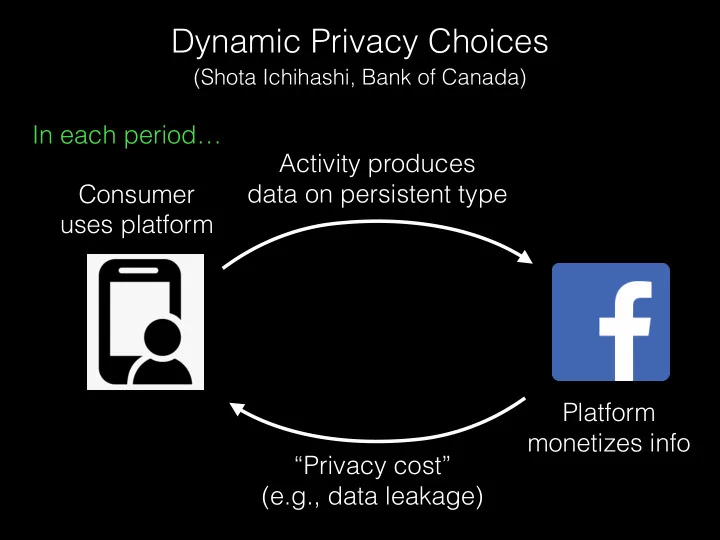

Dynamic Privacy Choices (Shota Ichihashi, Bank of Canada) In each period… Activity produces Consumer data on persistent type uses platform Platform monetizes info “Privacy cost” (e.g., data leakage)
How much will the platform learn about consumers in the end? \begin{theorem} In the long run, the consumer completely loses privacy. \end{theorem} The result holds even though the consumer (1) dislikes data collection; (2) is forward-looking; and (3) can produce no data by being inactive on platform
Intuition 1: decreasing incentive to protect privacy When consumers have less privacy, they have even lower marginal incentive to protect privacy “Since Google already knows everything about me, I no longer care whether it monitors my location today.” Data collection today makes future data collection easier
Intuition 2: collect information gradually In early periods, consumer cares about (marginal) privacy So, platform commits to a strict “privacy policy” (promise to not use cookies, e.g., Facebook in 2004) Slowly but gradually learns about consumer Later, relax privacy policy to speed up learning Consumer’s privacy concerns may delay data collection, but never stops it.
Recommend
More recommend